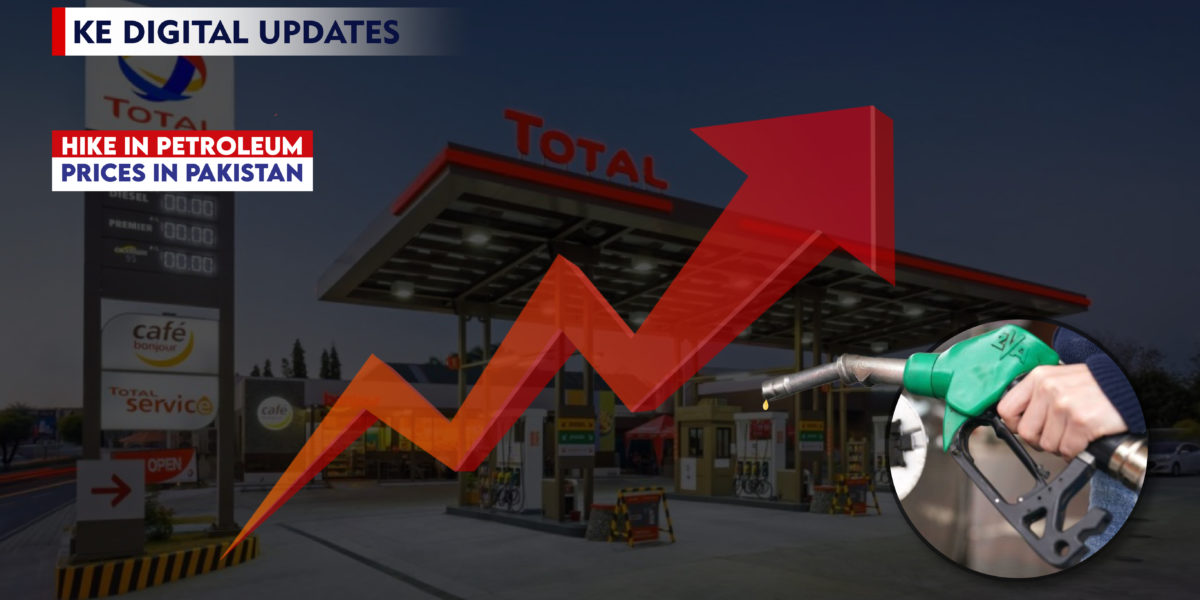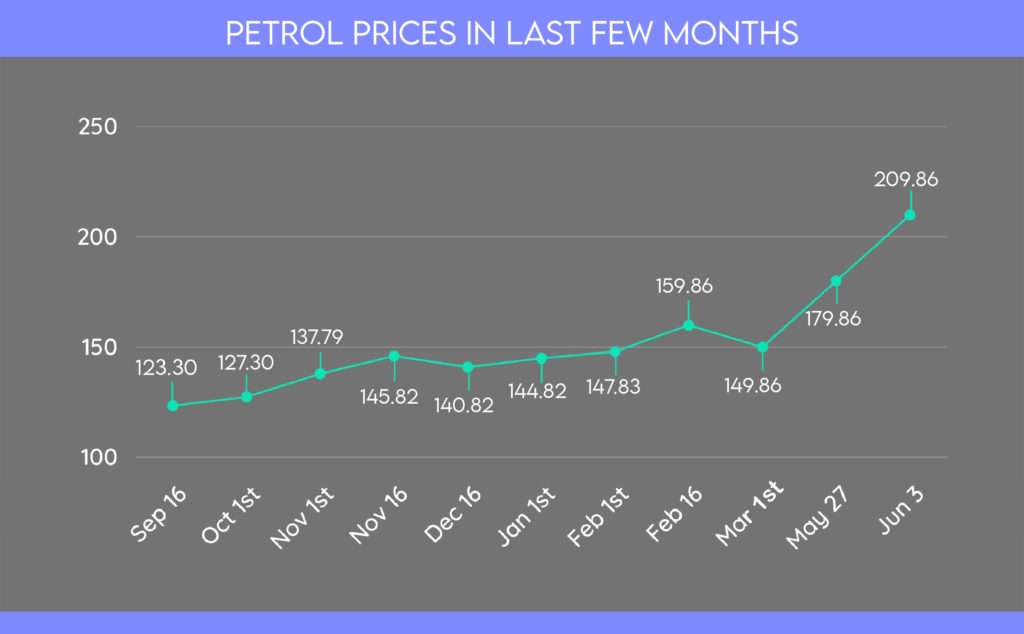A hike in oil prices on 2nd June again has disturbed the life functioning of many sectors in Pakistan. Finance Minister Miftah Ismail announced that petroleum prices would increase by 30 rupees. Petrol prices had increased by 30 rupees from 179.8 rupees per liter to 209.8 per liter, high-speed diesel prices from 174.15 rupees to 204.15 rupees per liter, and light diesel oil prices from 148.31 to 178.31 rupees per liter; all these have a jump of 60 rupees in 7 days from 27th May 2022 to 2nd June 2022.
Govt. has another announcement that if transporters increase fares by 30 %, then govt. will increase the
price of necessity food products like milk & groceries etc.
Facts:
- The Russian invasion of Ukraine has resulted in restrictions from the USA, and western countries have halted the petrol supply from Russia. Russia is an influencing petrol supplier.
- Shortage of petrol has surged the petrol prices globally.
- The broader gap in domestic and foreign petrol prices is one of the reasons to raise the oil prices.
- Finance Minister Miftah Ismail said that the Former Govt. had provided subsidies and kept oil prices under control, which had increased the government’s burden which has imposed a load of 120 billion rupees every month.
- Govt. of Pakistan had a previous agreement with the IMF for the loan 0f 6 billion dollars for its 7th installment of 0.09 billion dollars; IMF requires increasing the petrol prices, removing the subsidy, and levying taxes.
- Reserves of Pakistan have remained low only for the payments of a few weeks. Pakistan might be going towards bankruptcy.
Impact of Hikes in Petroleum Prices:
The impact of the raising the petroleum prices on different sectors is as follows:
Household Sector:
Consumers have to pay more for the hike in oil prices, especially the middle class, as they have to pay the indirect effect of oil hikes in daily products such as vegetables, Flour, cooking oil, bread, fruits, milk, etc. Milk prices have increased by RS.20/L; flour prices have increased by RS.2/kg from 93 rupees to 95 rupees.
Transportation Industry:
The Karachi Goods Carrier Association (KGCA) declared that another rise in oil prices has disturbed the transfer or movement of goods from Muhammad Bin Qasim Port and Karachi Port Trust. They have increased the fares by 30% when govt—increased 30 rupees per liter on 26th May. President of KGCA Rana M. Aslam said they would raise fares again by 20-30%. Fifteen thousand goods transports are moving from Karachi to other cities daily. A fare of two sides from Karachi to Lahore or Faisalabad was 100,000 rupees and has increased to 170,000 rupees with the price hike of 26th May. A recent 30 rupees surge in oil prices will raise it to 200,000 rupees. Oil prices, spare parts, tires, rims, etc., have increased costs. So, they have kept back 50% of their transport rather than become defaulters.
Steel industry:
- Rising prices of petrol and increasing freight charges are hindering the functioning of imports.
- Few numbers of available transporters has slowed down the timely supply of goods to the destination/production plants.
- Petrol price hikes have resulted in a surge in raw materials/steel scrap prices and transportation fares. The firm’s cost of production has increased.
- The construction sector has less demand for steel products due to rising prices.
Govt. Level:
- There was a burden of 120 billion rupees due to petrol subsidy every month, which will come down to 25 billion rupees on monthly expenses.
- The total liquid foreign exchange reserves of Pakistan has reached USD 15,7714 million, which will improve.
- Petroleum price hikes will raise inflation & unemployment and decrease the economic growth conditions of stagflation.



